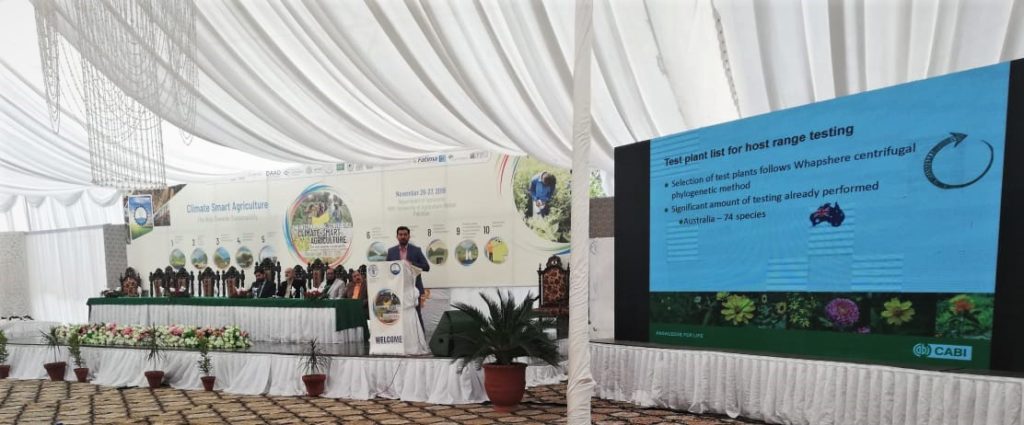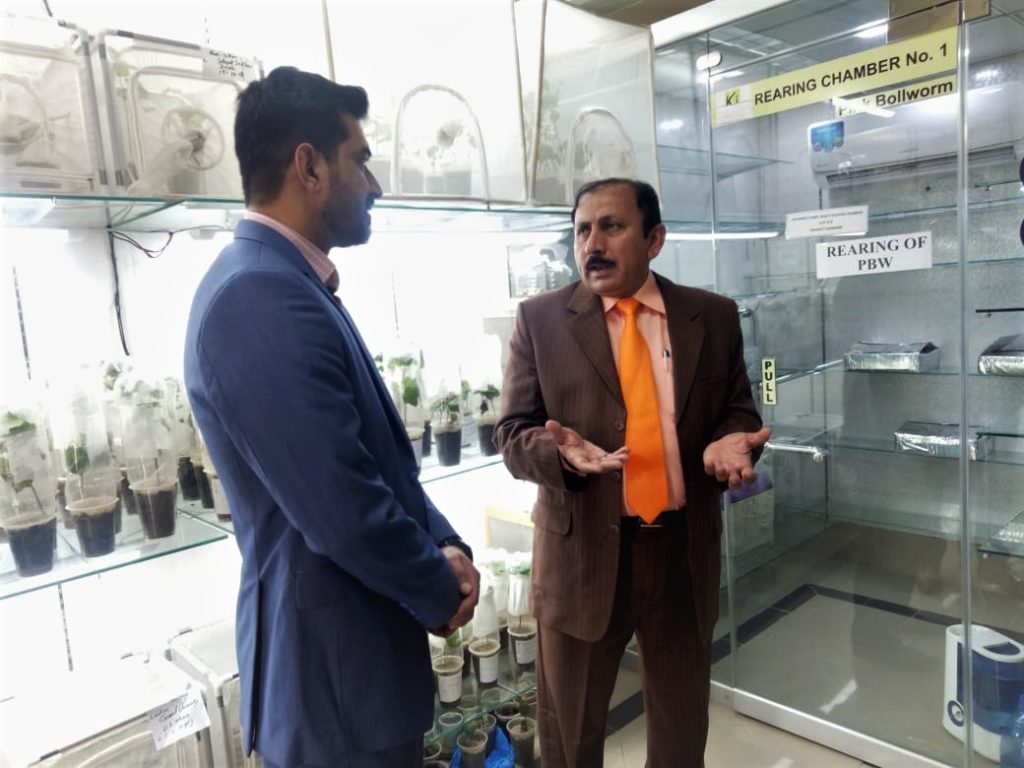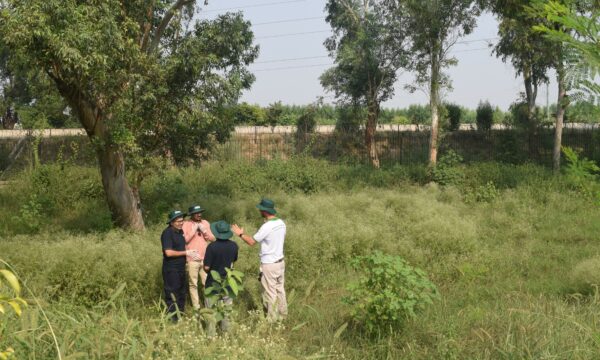
By Dr Kazam Ali, Biocontrol Research Officer – CABI Central and West Asia (CWA)
International conferences are priceless opportunities, not only for researchers and scientists but also for experts, policy makers, stakeholders and students, to ‘sharpen your saw’ by learning new skills in a different environment.
Attending conferences gives you the chance to listen to different points of view and learn new ideas and trends in your field. They also provide you with new techniques, new types of research data, and introduce you to investigators that you may not have heard of. It also allows participants to learn new information and tactics from hearing the presentations of others. They also allow the chance for networking with other researchers from different research organizations/universities and even countries you may have only heard or read about.
I took the opportunity to share my expertise on the management of Parthenium hysterophorus in Pakistan during the International Conference on Climate Smart Agriculture: The way towards Sustainability, which took place recently at the Muhammad Nawaz Shareef University of Agriculture, (MNSUA), Multan, Pakistan. On behalf of CABI’s Action on Invasives (AoI) programme, I delivered a talk on the management of parthenium – in particular the Integrated Pest Management approaches for the invasive weed. The conference was attended by over 600 research scientists from all parts of the country including 30 international scientists and students from various prestigious research organizations and universities of Italy, Canada, USA, China, Germany and Denmark.
There are around 480,000 invasive species in different ecosystems across the world. Each year, the damage caused by invasive species costs in excess of $1.4 trillion worldwide, representing almost 5% of the global economy, while weeds cause losses amounting to Rs65 billion annually in Pakistan agriculture. According to the CABI evidence note ‘Parthenium: Impacts and coping strategies in Central West Asia’, parthenium weed can cause severe allergic reactions in humans and livestock, may attract malaria-carrying mosquitoes, displace native plant species and reduce pasture carrying capacities by as much as 80% to 90% where in India, for example, the cost of restoring grazing land is around USD 6.7 billion per annum.
I took the opportunity to update the participants on the newly established quarantine facility for the screening of biological control agents against invasive parthenium weed in the country. With this quarantine facility the importation of the stem boring weevil, Listronotus setosipennis is being investigated as a potential biological control for parthenium and host range testing to check the safety of weevil is currently underway.

The conference also provided an opportunity for networking with research scientists from different schools of thought. During the conference, I had a meeting with Prof Dr Shafqat Saeed, the Dean Faculty of Agriculture and Environmental Sciences at MNSUA who also facilitated a visit to the research laboratories in the Department of Entomology, MNSUA. The Dean was briefed about the running of research activities and projects of their colleagues and students.
In Pakistan weeds are mostly managed using commercially available herbicides to which weeds are rapidly getting resistant and these chemicals also posing serious health hazards to human health and environment. To support Pakistan’s agricultural problems, CABI CWA under its AoI programme is initiating a classical weed biological control programme to cope with invasive parthenium weed using locally available and imported biocontrol agents. This programme will champion an environmentally sustainable approach to dealing with invasive species. The conference was a huge success and I really feel that it was a right platform to make people aware of the problem of invasive weed, different management strategies, and most importantly classical weed biological control.
Following the conference and to strengthen the weed biocontrol in Pakistan, CABI CWA organized a weed biocontrol training course at its Rawalpindi office for 35 researchers of different universities and research organizations from all over the Pakistan. Four key researchers were also sent to the Agriculture Research Council, South Africa, for a weed biocontrol training. The CABI AoI team is visiting farms, with its local partners, to identify parthenium infested places with no biocontrol agents and is ensuring that the redistribution of locally available BCAs to these areas. Such efforts will offer opportunities and will encourage Pakistani scientists and professionals for the establishment of biocontrol research activities, not only for management of parthenium, but also for other invasive threats. The aim is to ultimately reduce the pressure on synthetic chemicals.
Additional information
Find out more about CABI’s work on parthenium in Pakistan and relevant stories and blogs.
Related News & Blogs
CABI-led study suggests women in Pakistan need greater access to information on parthenium weed
A new CABI-led study investigated smallholder farmers’ knowledge, attitudes and practices towards parthenium and biological control in Pakistan. The study brings attention to important gendered aspects of parthenium impact. It also highlights smallhold…
27 June 2025




